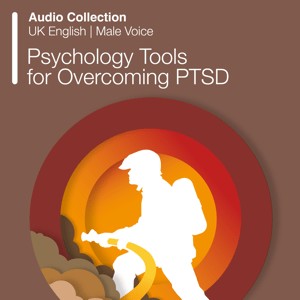Recovering From A Nightmare (Audio)
The Recovering From A Nightmare exercise is an audio track from the Psychology Tools For Overcoming PTSD Audio Collection. Many people with PTSD have frequent nightmares. These may be of things that actually happened, or anxiety dreams about things that could happen. It is common for people with PTSD to awake from nightmares feeling distressed and disoriented. Some people report that they are not sure where they are, or whether the trauma is happening again right at that moment.
This audio exercise gives straightforward information, advice, and strategies on how to quickly reorient oneself after a nightmare. The Recovering From A Nightmare track is designed for people suffering from nightmares, whether in the context of post-traumatic stress disorder (PTSD) or not.

Related resources
Tags
Languages this resource is available in
- English (GB)
- English (US)
Problems this resource might be used to address
Techniques associated with this resource
Introduction & Theoretical Background
Therapist Guidance
This audio track is designed for people suffering from nightmares, whether in the context of post-traumatic stress disorder (PTSD) or not. The audio track is a simple .mp3 file which can be played in most media player apps. You can also download the verbatim script, allowing you to record the exercise for your clients in your own voice to reinforce work completed in therapy.
References And Further Reading
- Ehlers, A., Clark, D. M. (2000). A cognitive model of posttraumatic stress disorder. Behaviour Research and Therapy, 38, 319-345.
- Fisher, J. (1999). The work of stabilization in trauma treatment. Trauma Center Lecture Series, Boston, Massachusetts.






